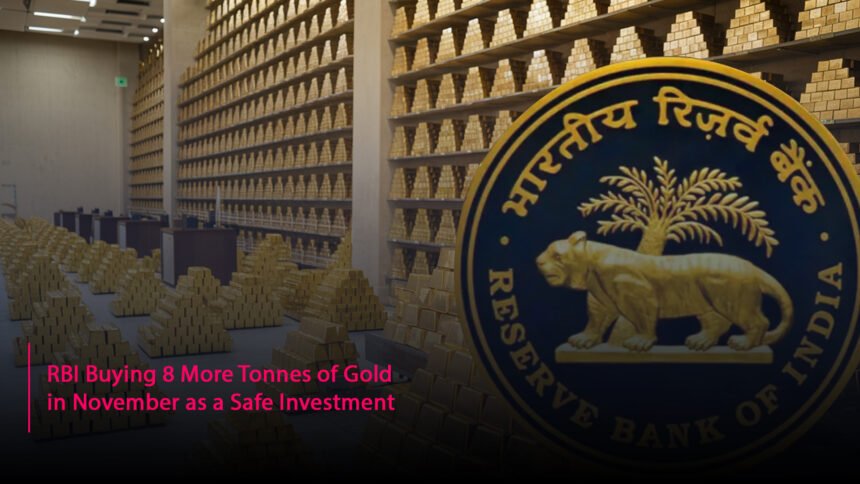The Reserve Bank of India (RBI) purchased an additional eight tonnes of gold in November 2024, as central banks globally continued their trend of buying gold. According to the latest report from the World Gold Council (WGC), central banks collectively acquired 53 tonnes of gold that month.
The report noted that a drop in gold prices in November, which followed the US elections, likely motivated some central banks to increase their gold purchases.
Like many other central banks, the RBI is investing in gold as a safe-haven asset. This approach aims to protect against inflation and minimize risks associated with foreign currencies, especially during times of geopolitical uncertainty.
With the addition of this eight-tonne purchase, the RBI has bought a total of 73 tonnes of gold in the first 11 months of 2024, bringing its overall gold reserves to 876 tonnes. This keeps the RBI as the second-largest gold buyer of the year, following Poland.

The People’s Bank of China (PBoC) has resumed its gold buying after a six-month hiatus, adding five tonnes to its reserves. This brings its total net purchases for the year to 34 tonnes and increases its reported gold holdings to 2,264 tonnes, which makes up 5% of its total reserves.
In contrast, the Monetary Authority of Singapore emerged as the largest seller of gold during the month, reducing its reserves by five tonnes. This brings its year-to-date net sales to seven tonnes and overall gold holdings to 223 tonnes.
The Reserve Bank of India’s (RBI) gold purchases have surged five-fold compared to the amount bought during the same period in 2023, according to figures from the World Gold Council (WGC).
As a result, the RBI’s total gold reserves have now reached 890 tonnes, with 510 tonnes stored within India. Additionally, the WGC reported that other central banks have also made gold purchases this month, including Poland, which bought 21 tonnes, and Uzbekistan, which acquired nine tonnes.
The significant gold purchases by central banks are contributing to rising prices for the precious metal in global markets.
More than half of the Reserve Bank of India’s (RBI) gold reserves are stored overseas, with secure custody arrangements in place at the Bank of England and the Bank for International Settlements. Approximately one-third of the RBI’s gold is kept in its vaults located in Nagpur and Mumbai.
In 2024, the RBI transferred 100 metric tonnes of gold from bank vaults in the United Kingdom to its own vaults in India, thanks to sufficient domestic storage capacity. This move is expected to save the RBI from incurring high fees associated with using vaults in the UK.










